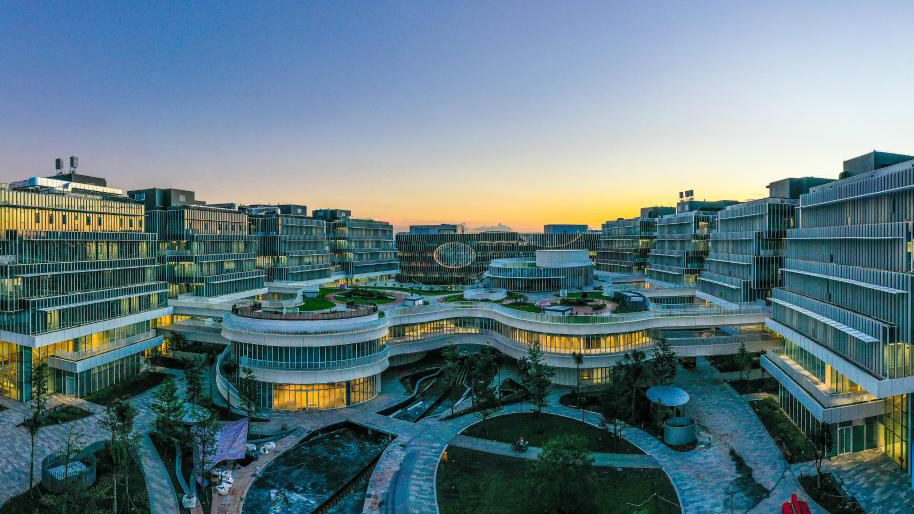Japan's economy faces headwinds amid resurgence of COVID-19 infections
TOKYO, Aug. 21 (Xinhua) -- Japan's gross domestic product (GDP) expanded an annualized 2.2 percent in the April-June period, the Cabinet Office said recently, but analysts believe that the Japanese economy, lacking momentum, faces multiple headwinds in the future.
The reading marked a 0.5-percent rise from the previous quarter, but the rise was below market expectations.
Japan's growth in the quarter was entirely driven by domestic demand, which contributed 0.5 percentage points to economic growth, official data showed.
On the external demand side, the contribution of export growth was completely offset by the sharp rise in imports, due to the high prices of energy and resources commodities.
In the second quarter, Japan's service sector, including dining out and hotel accommodation, picked up the pace and personal consumption grew 1.1 percent month on month, official data showed.
Equipment investment by enterprises, another pillar industry of domestic demand, increased by 1.4 percent from a decline in the previous quarter. While on a monthly basis, residential investment further fell from the previous quarter by 1.9 percent.
Personal consumption, which accounts for more than half of the Japanese economy, showed sluggish growth in the second quarter without the expected rebound, according to local media and analysts.
According to a survey conducted by Japan's Ministry of Internal Affairs and Communications, real household income fell 2 percent in the second quarter from a year earlier while real consumer spending fell 0.7 percent.
Experts noted that falling real incomes in Japan will dampen household spending amid rising prices, and Japan's economic recovery still faces multiple headwinds amid various risks from home and abroad.
Amid the seventh wave of COVID-19 infections, the country reported 1,395,301 cases in the week from Aug. 8 to Aug. 14, the highest weekly number of new cases in the world for the fourth week in a row, according to the World Health Organization.
Although the government has not taken any measures to restrict economic activity, many consumers are still restrained from spending outside.
The economy is in a severe shortage of labor as hundreds of thousands of newly infected people and close contacts are forced to stay at home for quarantine every day, affecting the normal operation of factories, which aggravates the supply side constraints.
Analysts here also noted that a recession in the U.S. economy will also worsen the environment for world growth. The International Monetary Fund (IMF) has slashed its forecast for world economic growth in 2022 to 3.2 percent, as rapid cooling of the U.S. economy will inevitably hit the global economy.
Japan's Cabinet Office recently issued a report, cutting the economic growth forecast for this fiscal year to 2 percent from 3.2 percent at the beginning of the year, considering that the U.S. recession may pose a huge downside risk to the global economy while worsening the environment for Japan's external demand recovery.
Experts noted that Japan's economic and security policies, which Prime Minister Fumio Kishida has been pushing hard, are also likely to create headwinds for the Japanese economy in the future as a variety of specific government decrees, expected to be introduced focusing on the economic security law passed in May, are likely to increase the burden on enterprises.
Yasuhide Yajima, chief economist at the NLI Research Institute worried that Kishida will "prioritize security even at the expense of economic growth."
Photos
Related Stories
- Japan's industry minister visits crippled Fukushima plant amid controversial plan to dump radioactive wastewater into sea
- 5.3-magnitude quake strikes off Japan's Fukushima Prefecture, no tsunami warning issued
- Commentary: Stay vigilant against Japan's "toxic textbook" on history
- Japan will wander onto dangerous wrong path if it tries to turn back wheel of history
- Japan marks 77th anniversary of atomic bombing of Nagasaki amid calling for revisiting its brutal history
Copyright © 2022 People's Daily Online. All Rights Reserved.









